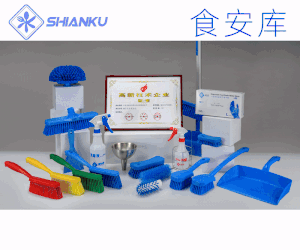食品伙伴網(wǎng)訊 2024年4月5日,歐盟食品安全局就一種枯草桿菌蛋白酶(subtilisin)的安全性評價發(fā)布意見。
據(jù)了解,這種食品酶是由轉(zhuǎn)基因地衣芽孢桿菌菌株NZYM-CB生產(chǎn)的,旨在用于六種食品生產(chǎn)過程。
經(jīng)過評估,專家小組認為,在預(yù)期的使用條件下,不能排除飲食暴露引起過敏反應(yīng)的風險,特別是對甜瓜或石榴過敏的個體,但不會超過食用這些食品的風險。根據(jù)所提供的數(shù)據(jù),評估小組得出結(jié)論,這種食品酶在預(yù)期使用條件下不會引起安全問題。部分原文報道如下:
The food enzyme subtilisin (EC 3.4.21.62) is produced with the genetically modified Bacillus licheniformis strain NZYM-CB by Novozymes A/S. The genetic modifications do not give rise to safety concerns. The food enzyme is considered free from viable cells of the production organism and its DNA. It is intended to be used in six food manufacturing processes. The dietary exposure to the food enzyme-TOS was estimated to be up to 0.722 mg TOS/kg body weight (bw) per day in European populations. The production strain of the food enzyme fulfils the requirements for the qualified presumption of safety approach to safety assessment. As no other concerns arising from the manufacturing process were identified, the Panel considered that toxicological tests were not required for the assessment of this food enzyme. A search for the similarity of the amino acid sequence of the food enzyme to known allergens was made and 20 matches were found, including two food allergens (melon and pomegranate). The Panel considered that the risk of allergic reactions by dietary exposure cannot be excluded, particularly in individuals sensitised to melon and pomegranate, but would not exceed the risk from consumption of melon or pomegranate. based on the data provided, the Panel concluded that this food enzyme does not give rise to safety concerns under the intended conditions of use.
本文由食品伙伴網(wǎng)食品資訊中心編輯,有任何疑問,請聯(lián)系news@foodmate.net。
相關(guān)政策解讀











 地區(qū):
地區(qū):






 魯公網(wǎng)安備 37060202000128號
魯公網(wǎng)安備 37060202000128號



